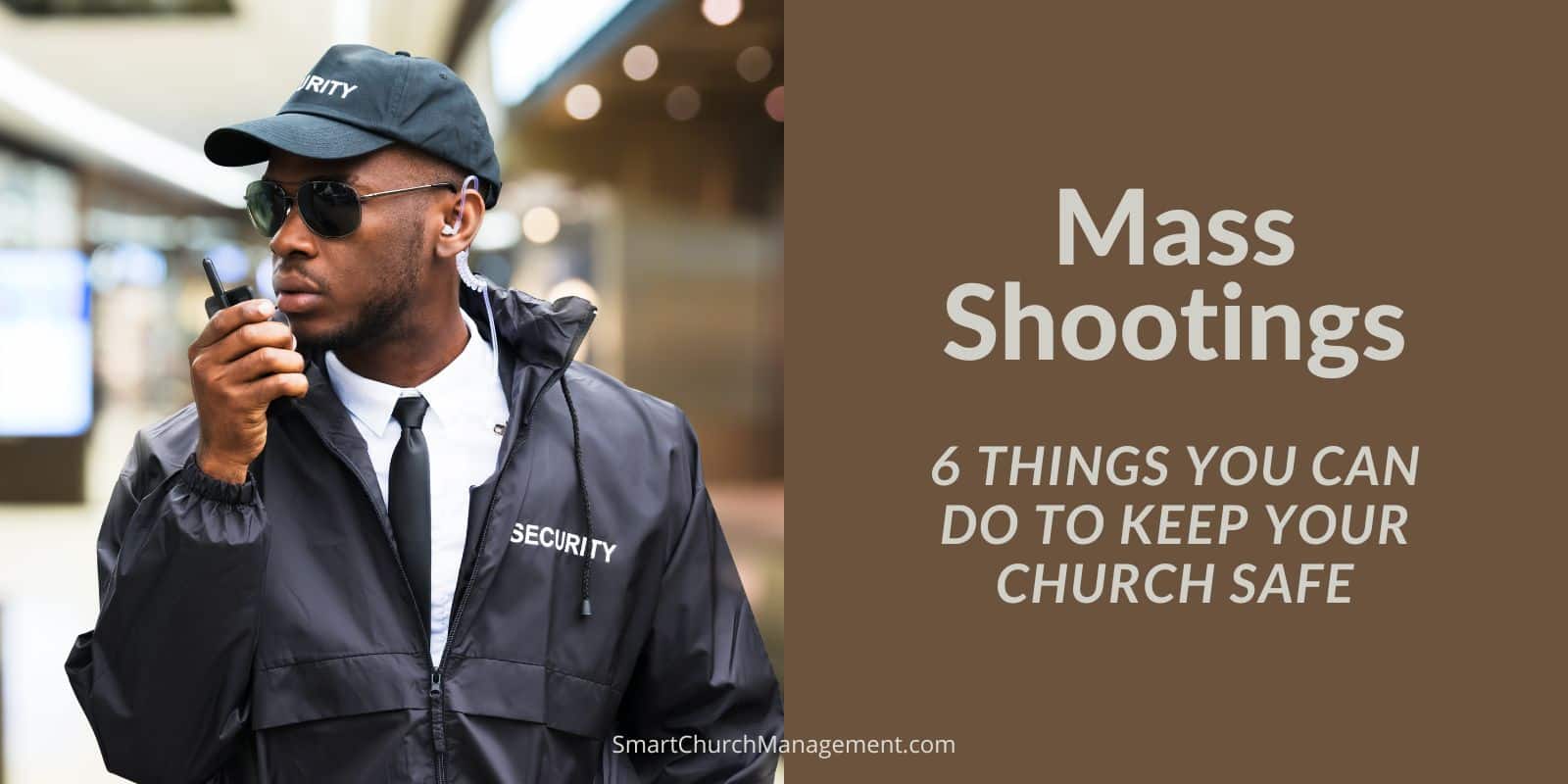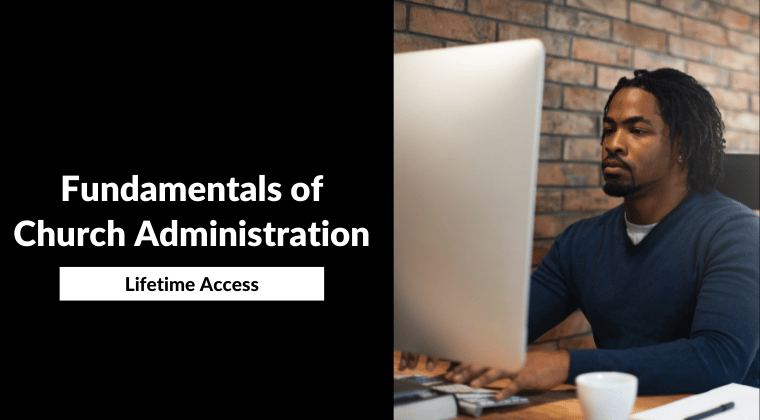Estimated reading time: 5 minutes
Our country experienced yet another senseless mass shooting at a Christian school this week.
The school shooting in Nashville is yet another example of how vulnerable we have become and the importance of providing a safe environment for students and members.
Those who are driven by hate prey upon gatherings of people with the intent to do harm when they least suspect it.
Things Have Changed For Churches
Churches have long been a place of refuge and historically a place where doors were never closed.
Things are different today. Churches lock their doors when not in session to guard against vandals, theft, or harm to others.
We are vulnerable because we feel safe in a crowd, particularly when we are with other believers.

However, as we saw in the recent California Church Shooting, Texas Church Shooting, the Charleston Church Shooting, or the pastor who was killed at an Illinois Church Shooting – the church is not always a safe place to be.
Church shootings happen often enough that there is now a national database that houses statistics on church shootings.
“The National Church Shooting Database recorded a total of 139 shootings in churches between 1980 and 2005. In all, 185 people died, including 36 children. These numbers don’t include other types of violence that don’t involve guns, such as bombings..”
So how can a church balance the safety of its members with its desire to welcome the public?
6 Things You Can Do To Keep Your Church (and School) Safe
1. Have a Plan
Planning entails having a conversation about a topic and developing a plan to respond to any number of scenarios.
Emergency management plans go into detail about the – who, what, when, and how an organization will respond to any number of unforeseen situations.
For instance, an emergency plan will incorporate a PR strategy and appoint a spokesperson in the event of unexpected emergency.
In the same way, a church should identify its safety vulnerabilities and think about how it would respond if an armed intruder entered its campus, church, or children’s facilities.
For instance, the Nashville school shooting teachers knew what to do by fortifying doors and sheltering children in their rooms. This more than likely is a result of teachers being trained in what to do in an emergency.
2. Delegate Eyes and Ears
Oftentimes these senseless shootings involve a mentally ill person or domestic disputes that the church may not even be aware of.
Have a team of trained volunteers identified to watch for unusual behavior and people who don’t belong.
This is sensitive because the church is where we want the hurting to come – so it can be difficult to decipher the two.
Train these eyes and ears to notify the appropriate person(s) if they see any questionable behavior.
For instance, if there is a new face at your church and this person is nervously looking around or acting peculiarly, train your team to watch and be prepared to act.
This may be as simple as approaching this person and striking up a conversation. Letting the person know that you noticed them will likely confirm their motives or help them feel welcomed.
Just remember, the church is a place for the hurting, and many of those people have issues that may manifest in odd behaviors. The hurting is who we want to help while protecting from those who intend to do harm.
3. Partner with Local Law Enforcement
Would-be perpetrators prey on the vulnerable and aren’t interested in dealing with law enforcement.
Partner with local police and hire an off-duty policeman to have a presence at your church before, during, and after church gatherings.
Ask them to park a patrol car in the parking lot, close to the building as a visual deterrent.
There is an expense to this, no question, but this type of deterrent can be invaluable if your church is the target.
4. Train on Response
Another advantage of having police officers on campus is that they are trained on how to respond to any number of incidents.
Use these professionals to help train your usher or security team for handling someone who is acting out.
A well-trained team will know what to do but, more importantly, what NOT to do when confronted with someone who intends to do harm.
The response to a person with bad intentions can dictate the outcome, so responding appropriately is crucial to keeping everyone safe.
5. Guns Or No Guns
The political debate continues about gun control. One side argues that easy access to guns is the problem. The other side argues that guns can and should be used for self-defense.
In the case of the California church shooting, a trained team of parishioners acted quickly and got the gunman under control.
Every church needs to determine what is the best approach for its members and church culture.
Trained, armed members may not be the answer for every church. But should at least be discussed and debated at the church board level to ensure the church is doing everything to keep its members safe.
6. Prayer
Believers understand the importance of prayer and the critical role it can play in keeping us safe.
Make a commitment to continually pray for the safety of your church, school campus, members, and visitors.
Ask God to give Biblical wisdom and discernment if and when the time comes that your church is forced to deal with someone whose only intent is to do harm.
Do Not Be Led By Fear
It is easy to succumb to fear when it seems like there is daily news about mass casualty assaults.
However, the Bible tells us, “For God has not given us a spirit of fear, but of power and of love and of a sound mind.” 2 Timothy 1:7
Christians know not to live by fear but by faith. Those of us in church leadership understand our responsibility to care for those in our charge and to prayerfully have a plan, trained team members, and a coordinated response should that day ever come.
Learn more tips for managing your church by enrolling in our Fundamentals of Church Administration Course.



